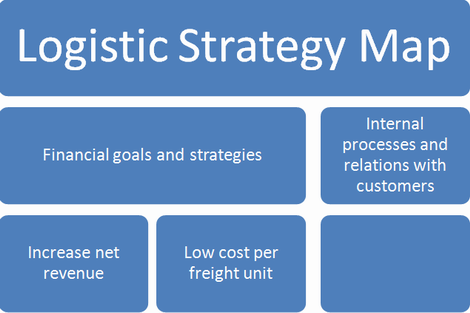The effectiveness of your business is dependent on your customers buying your products. Yet developing a cost-effective and reliable way of getting those goods to customers can be one of the most difficult elements of business to organise. So read on to find out the basics of any efficient distribution strategy.
Align Goals
Your business needs goals – as does your logistics and supply chain strategy. Your distribution goals should support the overall plans and targets for your business, so it’s important to align logistics with your overall company goals. If for example, you’re planning to achieve a 5% market share in the supply of widgets, your logistics should be ready to take on your growth.
Plan Ahead
Supply chains are complex webs or networks reliant on many outside influences, and as such, disruption can and does happen. This could include poor weather, natural disasters or economic crises and strikes. Failing to have a contingency plan in place for ‘black swan’ events can throw even the best logistics into disarray, so plan ahead for how you intend to handle any disruptions. Before establishing any new supply chains, always run a full and complete risk and resilience assessment.
Identify Problems
Resolving an existing logistics strategy relies on identifying the current difficulties. These can range from poor management of warehouse processes, failing to track goods in transit and the location of fleets, or inadequate warehouse capacity. The speed of transport is also important -, failing to deliver on time can cause supply chain problems and dissatisfaction with your company a long way down the line. Understand how important timely delivery is to your customers, and how inadequate logistics affects your operation.
Partner Up
Outsourcing logistics through a third party logistics provider (3PL) is a cost-effective and efficient strategy. However, always be sure to use a company which doesn’t see you as a project, but as a critical link in your company chain. A good logistics provider should support your goals, be flexible, work with you to create and deliver the right supply chain strategies, and use fully trackable processes as well as deliver on time!
Tools
Logistics software can help your supply chain processes enormously, as software enables you in streamlining operations through simplifying the complex processes of effective storage and distribution. Warehouse management, inventory, dispatch, tracking, order routing, online visibility, fuel efficiency data, integrated business systems, billing, and order receipts are just some of the capabilities of logistics software.
Delegate
Employing a logistics manager can be a worthwhile investment and free you up from the business of managing your logistics. A logistics manager should evaluate data and performance, control the order cycle, implement and use appropriate software, manage staff, communicate with suppliers and customers, allocate and manage staff resources according to changing needs; and continually try to improve and develop performance by taking care of any inefficiencies in logistics and information flow.
The Customer is King!
Last but not least, remember that a successful logistics strategy will be always be a customer focused strategy.
Harry Price is a freelance writer who lives on the south coast with his wife and 3 dogs.





